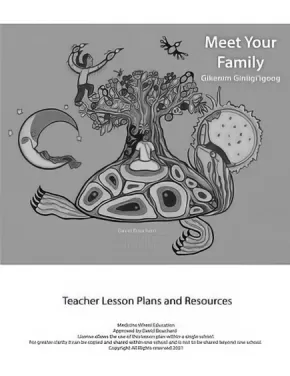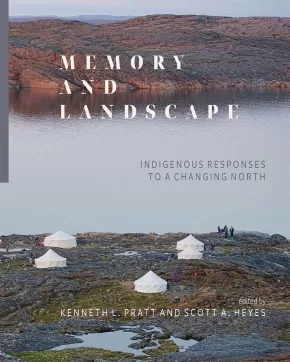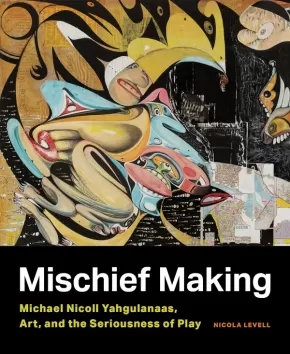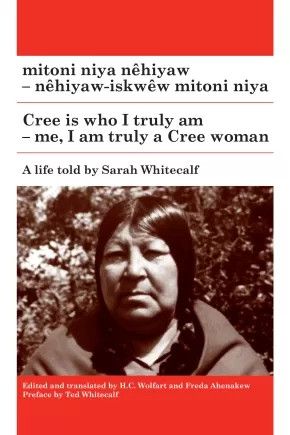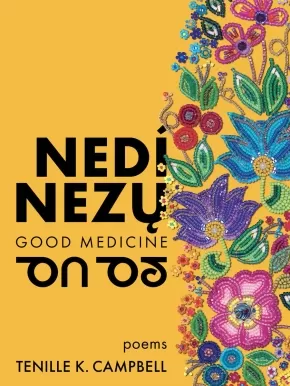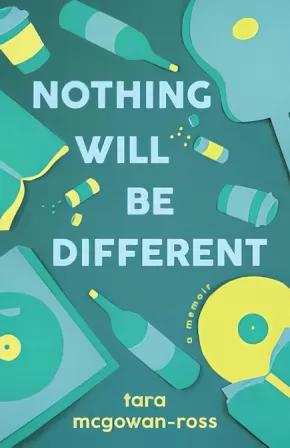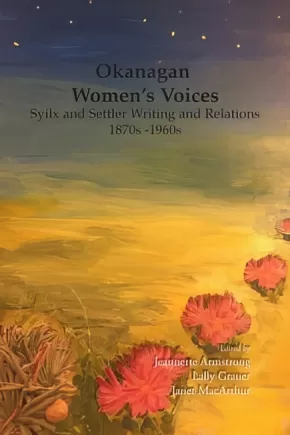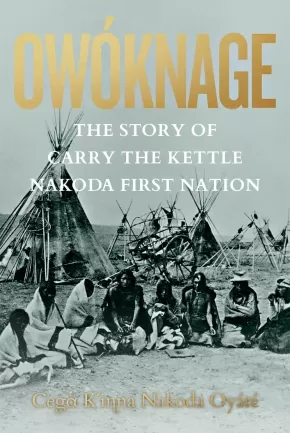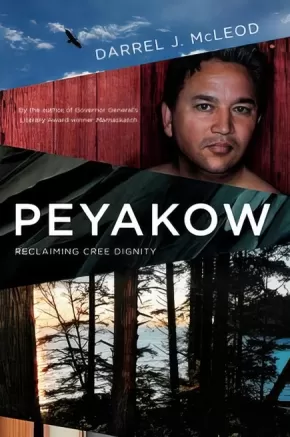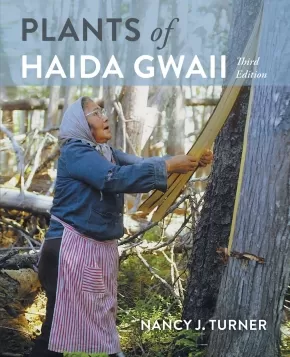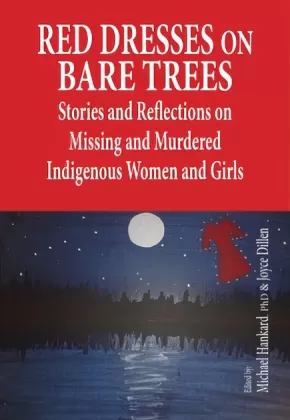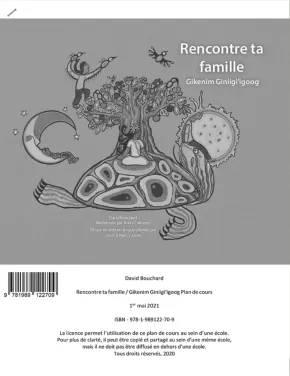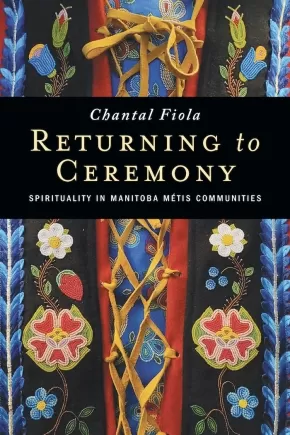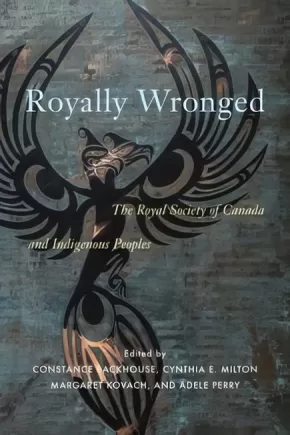
Indigenous Peoples in Canada
526
-
540
of
1085 Results;
Sort By
Go To
of 73
Meet Your Family Teacher Lesson Plan
$7.99
Artists:
Format:
Paperback
Text Content Territories:
Indigenous Canadian; First Nations; Anishinaabeg; Ojibway;
ISBN / Barcode: 9781989122679
Synopsis:
Synopsis:
This is the Teacher Lesson Plan that accompanies the book Meet Your Family. Includes comprehension questions, group activities, wordsearch, colouring pages etc. Mother Earth, we come from her, we go to her, without her we wouldn't be here, she gives all of us life and because of her we are all one family. In many segments of Indigenous life we speak of Mother Earth, Father Sky, Grandfather Sun, and Grandmother Moon.
Meet Your Family is a rhythmic poem that will enlighten readers on how to view these important figures and share a greater concept of seeing the world as our natural family. Meet Your Family is presented in both English and Ojibway. An additional softcover book written in Ojibway with a phonetics guide is included inside this hardcover book.
Educator Information
Includes:
– Brainstorming Activity
– Letter Writing
– Comprehension Questions
– Colouring
– Crossword Puzzle
– Word Search
The license allows the use of this lesson plan within a single school. It can be copied and shared within one school but is not to be shared beyond that.
The student resource is available here: Meet Your Family / Gikenim Giniigi'igoog
Additional Information
12 pages | 8.50" x 11.00" | b&w illustrations
Memory and Landscape: Indigenous Responses to a Changing North
$59.99
Editors:
Format:
Paperback
Text Content Territories:
Indigenous American; Indigenous Canadian; Indigenous European; Greenlandic Inuit; Indigenous Siberian;
Reading Level: N/A
ISBN / Barcode: 9781771993159
Synopsis:
Synopsis:
“Our identity, our sense of belonging, our understanding of being human, is all connected to our relationship with the land. And our relationship with these lands span millennia. Our grandfathers and grandmothers that came before us walked these same ridges, valleys, and trails. They fished the same lakes, streams, and rivers. They cherished memories carried in the pungent smell of the fall tundra, in wafts of spruce, cottonwood, and willow smoke. They ventured throughout these lands until their final rest. Our ancestors are literally part of this land. We are part of this land.” –Evon Peter
The North is changing at an unprecedented rate as industrial development and the climate crisis disrupt not only the environment but also long-standing relationships to the land and traditional means of livelihood. Memory and Landscape: Indigenous Responses to a Changing North explores the ways in which Indigenous peoples in the Arctic have adapted to challenging circumstances, including past cultural and environmental changes. In this beautifully illustrated volume, contributors document how Indigenous communities in Alaska, northern Canada, Greenland, and Siberia are seeking ways to maintain and strengthen their cultural identity while also embracing forces of disruption.
Indigenous and non-Indigenous contributors bring together oral history and scholarly research from disciplines such as linguistics, archaeology, and ethnohistory. With an emphasis on Indigenous place names, this volume illuminates how the land—and the memories that are inextricably tied to it—continue to define Indigenous identity. The perspectives presented here also serve to underscore the value of Indigenous knowledge and its essential place in future studies of the Arctic.
Contributions by Vinnie Baron, Hugh Brody, Kenneth Buck, Anna Bunce, Donald Butler, Michael A. Chenlov, Aron L. Crowell, Peter C. Dawson, Martha Dowsley, Robert Drozda, Gary Holton, Colleen Hughes, Peter Jacobs, Emily Kearney-Williams, Igor Krupnik, Apayo Moore, Murielle Nagy, Mark Nuttall, Evon Peter, Louann Rank, William E. Simeone, Felix St-Aubin, and Will Stolz.
Additional Information
448 pages | 8.00" x 10.00" | 172 Colour Illustrations | Paperback
Authenticity Note: This work contains contributions from Indigenous and non-Indigenous contributors. It is up to readers to determine if this is an authentic work for their purposes.
Mischief Making: Michael Nicoll Yahgulanaas, Art, and the Seriousness of Play
$29.95
Artists:
Format:
Paperback
Text Content Territories:
Indigenous Canadian; First Nations; Haida;
Reading Level: N/A
ISBN / Barcode: 9780774867368
Synopsis:
Synopsis:
In a gorgeously illustrated exploration of the art of Michael Nicoll Yahgulanaas, Mischief Making disproves any notion that play is frivolous. Deploying mischievous tactics, Yahgulanaas shines a spotlight on serious topics.
Expressive and exuberant, comic and imaginative: these characteristics suffuse the work of the internationally recognized creator of Haida manga. His distinctive style stretches, twists, and flips the formlines of classic Haida art to create imagery that resonates with the graphic vitality of Asian manga. Mischief Making delineates the evolution of the artist’s visual practice into a uniquely hybrid aesthetic, uncovering its philosophical underpinnings. Initially focused on paper-based narratives, his work has expanded into painted canvases, mixed-media installations, repurposed automobile parts, large-scale public art projects, and animated forms. Yet despite its mutability, Yahgulanaas’s art is consistently engaged with contemporary cultural concerns, investigating the intersections of Indigenous and other worldviews, the politics of land, cultural heritage, and global ecological affairs.
Mischief Making reveals the artist’s deep understanding of the seriousness of play. His refiguring of lines and stories opens up a realm in which the disruption of what’s expected allows different ways of experiencing, knowing, and seeing the world to emerge.
Reviews
"This is an exciting journey through the refreshing life’s work of one of Canada’s foremost Indigenous artists. Learning from Nicola Levell’s insightful analysis opens the eyes to a wondrous world beyond stale and superseded categories of ‘tradition’, ‘Western’ and ‘Indigenous’! Highly recommended!" — Arnd Schneider, professor, Department of Social Anthropology, University of Oslo
"The Northwest Coast dances with the East and 8.5 tons of stainless steel/copper/marble, then strides to Emma Lake. A comprehensive look at the work of Yahgulanaas – we witness in text, he is doing what he can – just like the hummingbird."
— Dana Claxton (Lakota), artist, professor and department head of Art History, Visual Art and Theory, University of British Columbia
Additional Information
168 pages | 9.00" x 11.00" | 149 colour illus., 22 b&w illus. | Paperback
168 pages | 9.00" x 11.00" | 149 colour illus., 22 b&w illus. | Paperback
mitoni niya nêhiyaw / Cree is who I truly am: nêhiyaw-iskwêw mitoni niya / me, I am truly a Cree woman
$29.95
Editors:
Format:
Paperback
Text Content Territories:
Indigenous Canadian; First Nations; Cree (Nehiyawak);
Grade Levels: University/College;
ISBN / Barcode: 9780887559426
Synopsis:
Synopsis:
Strong women dominate these reminiscences: the grandmother taught the girl whose mother refused to let her go to school, and the life-changing events they witnessed range from the ravages of the influenza epidemic of 1918–20 and murder committed in a jealous rage to the abduction of a young woman by underground spirits who on her release grant her healing powers.
A highly personal document, these memoirs are altogether exceptional in recounting the thoughts and feelings of a Cree woman as she copes with the challenges of reserve life but also, in a key chapter, with her loneliness while tending a relative’s children in a place far away from home – and, apparently just as debilitating, away from the company of other women. Her experiences and reactions throw fresh light on the lives lived by Plains Cree women on the Canadian prairies over much of the twentieth century.
The late Sarah Whitecalf (1919–1991) spoke Cree exclusively, spending most of her life at Nakiwacîhk / Sweetgrass Reserve on the North Saskatchewan River. This is where Leonard Bloomfield was told his Sacred Stories of the Sweet Grass Cree in 1925 and where a decade later David Mandelbaum apprenticed himself to Kâ-miyokîsihkwêw / Fineday, the step-grandfather in whose family Sarah Whitecalf grew up.
In presenting a Cree woman’s view of her world, the texts in this volume directly reflect the spoken word: Sarah Whitecalf’s memoirs are here printed in Cree exactly as she recorded them, with a close English translation on the facing page. They constitute an autobiography of great personal authority and rare authenticity.
Educator Information
Table of Contents
PART I Becoming a Cree woman
Ch. 1—êkosi nikî-pê-ay-itâcihonân / This has been our way of life
Ch. 2—êkosi nikî-tâs-ôy-ohpikihikawin / This is the way I was raised
Ch. 3—mêh-mêskoc nikî-pimohtahikawin / I was taken back and forth
Ch. 4—miton ê-kî-pê-na-nêhiyaw-ôhpikihikawiyân / I was truly raised as a Cree woman
PART II Being a Cree woman
Ch. 5—êwak ôm ê-kî-ay-itâcimisot awa nikâwiy / This is my mother’s own story
Ch. 6—iyikohk ê-kî-sôhkêpayik anima nipahtâkêwin / So horrible was that murder
Ch. 7—ê-nipahi-kâh-kaskêyihtamân / I was desperately lonesome
Ch. 8—pikw êkwa niya / Now I had to take charge
PART III The spiritual life
Ch. 9—ê-sîkâwîhcikêhk / Observing the mourning ritual
Ch. 10—manitow kâ-matwêhikêt / Where the spirits drum (I)
Ch. 11—manitow kâ-matwêhikêt / Where the spirits drum (II)
Ch. 12—manitow kâ-matwêhikêt / Where the spirits drum (III)
Additional Information
366 pages | 6.50" x 9.75"
nedi nezu (Good Medicine) (8 in Stock) - On Sale!
$12.57 $17.95
Format:
Paperback
Text Content Territories:
Indigenous Canadian;
Grade Levels: University/College;
ISBN / Barcode: 9781551528465
Synopsis:
Synopsis:
A celebratory, slyly funny, and bluntly honest take on sex and romance in NDN Country.
nedi nezu (Good Medicine) explores the beautiful space that being a sensual Indigenous woman creates - not only as a partner, a fantasy, a heartbreak waiting to happen but also as an auntie, a role model, a voice that connects to others walking the same path. From the online hookup world of DMs, double taps, and secret texts to earth-shakingly erotic encounters under the northern stars to the ever-complicated relationship Indigenous women have with mainstream society, this poetry collection doesn't shy away from depicting the gorgeous diversity in decolonized desire. Instead, Campbell creates the most intimate of spaces, where the tea is hot and a seat is waiting, surrounded by the tantalizing laughter of aunties telling stories.
These wise, jubilant poems chronicle many failed attempts at romance, with the wry humour needed to not take these heartbreaks personally, and the growth that comes from sitting in the silence of living a solo life in a world that insists everyone should be partnered up. With a knowing smile, this book side-eyes the political existence and celebrates the lived experience of an Indigenous woman falling in love and lust with those around her -but, most importantly, with herself.
nedi nezu is a smart, sensual, and scandalous collection dripping in Indigenous culture yet irresistible to anyone in thrall to the magnificent disaster that is dating, sex, and relationships.
Reviews
"Since I was hit on by someone using lines from #IndianLovePoems and immediately went out to buy it, I've been eagerly waiting for Tenille K. Campbell's next collection. What a joy and a blessing to find myself in pages as intimate as staying up late with your best friend sharing truths, as hot as meeting your next lover's gaze, and as sharp as a mean auntie. nedi nezu cements Campbell's reputation as the matriarch of decolonized desire." -Eden Robinson, author of Trickster Drift
"There are many kinds of intimacy in Tenille Campbell's delicious second collection: that of laughing lovers entangled in damp sheets under the star-strewn northern sky; that of a Dene/Metis woman dreaming her relations with the living land, its histories, and its futures; that of a formidably talented woman in all her complex contexts - poet, scholar, mother, lover - who shifts with ease between evocations of knee-trembling desire, wry humour, tender kindness, and aching loneliness. The poems are a love-language that honours the messy, meaningful complexities of sensual self-determination, the fierce assertion of an Indigenous woman's embodied and visionary power. We are lucky indeed to have the restorative gift of Campbell's work in this ever more alienating world. Read it, share it, be transformed." -Daniel Heath Justice, author of Why Indigenous Literatures Matter
"Dare we all have such an opportunity to revel in the intimate oratories of Tenille K. Campbell's matriarchy. She asks us to 'know that we are in ceremony' as she undertakes an album of sensual and sexual vignettes rinsed clean of seeds in gentle spring waters. Alternatively, she interrogates fatphobia, Indigenous masculinities, academia, heteropatriarchy, and untangles the ways in which poetry hinges on the pervasive in the stratosphere of social media. Campbell shows us yet again why Indigeneity is wholly and irrevocably erotic by nature." -Joshua Whitehead, author of Jonny Appleseed
Educator Information
Caution: Mature language.
Additional Information
92 pages | 6.00" x 8.00"
Nothing Will Be Different: A Memoir
$21.99
Format:
Paperback
Text Content Territories:
Indigenous Canadian; First Nations; Mi'kmaq;
Reading Level: N/A
ISBN / Barcode: 9781459748736
Synopsis:
Synopsis:
A neurotic party girl's coming-of-age memoir about learning to live before getting ready to die.
Tara has it pretty good: a nice job, a writing career, a forgiving boyfriend. She should be happy. Yet Tara can’t stay sober. She’s terrible at monogamy. Even her psychiatrist grows sick of her and stops returning her calls. She spends most of her time putting out social fires, barely pulling things off, and feeling sick and tired.
Then, in the autumn following her twenty-seventh birthday, an abnormal lump discovered in her left breast serves as the catalyst for a journey of rigorous self-questioning. Waiting on a diagnosis, she begins an intellectual assessment of her life, desperate to justify a short existence full of dumb choices. Armed with her philosophy degree and angry determination, she attacks each issue in her life as the days creep by and winds up writing a searingly honest memoir about learning to live before getting ready to die.
Reviews
"This delightful book, appropriately enough, works like your favourite mixtape. It's got everything you want, and somehow it all fits. The arrangement is unexpected but, in retrospect, seems obviously right. Here is softness and pain, intimacy and revulsion, flourishing and sickness. And McGowan-Ross just sounds so good." — Sasha Chapin, author of All The Wrong Moves
"Tara McGowan-Ross is an unpretentious poet and philosopher weaving together meaning from the pain, grief, heartache, as well as simple joy of being alive. Nothing Will Be Different is a meditation on amor fati: the love of fate, the love of what is. By being with all of it: trauma, profound loss, the reality of death, addiction, precarity, the gig economy, hard work, love both dizzying and secure, sex, and insatiable desire, Tara shows us that transformation comes not through a battle against what is, but from the willingness to be changed by it." — Clementine Morrigan, author of Love Without Emergency
Additional Information
240 pages | 5.50" x 8.50"
Okanagan Women's Voices: Indigenous Settler Writing and Relations
$34.95
Editors:
Format:
Paperback
Text Content Territories:
Indigenous Canadian; First Nations; Salish; Interior Salish; Syilx (Okanagan);
Reading Level: N/A
ISBN / Barcode: 9781926886527
Synopsis:
Synopsis:
The writing and relations between Syilx women and settler women, largely of European descent, who came to inhabit the British Columbia southern interior from the mid-nineteenth to the early twentieth centuries.
Educator Information
Okanagan Women’s Voices features the writing and stories of seven women: Susan Moir Allison (1845-1937), Josephine Shuttleworth (1866-1950), Eliza Jane Swalwell (1868-1944), Marie Houghton Brent (1870-1968), Hester Emily White (1877-1963), Mourning Dove (1886-1936) and Isabel Christie MacNaughton (1915-2003).
Additional Information
6.00" x 9.00" | Paperback
Orange Shirt Day Book Package
$92.99
Artists:
Text Content Territories:
Indigenous Canadian; First Nations; Salish; Interior Salish; Secwepemc (Shuswap); Stswecem'c Xgat'tem;
ISBN / Barcode: 9781989122808
Synopsis:
Synopsis:
A collection of authentic Orange Shirt Day books from the founder of the Orange Shirt Day movement, Phyllis Webstad. Package includes four books and three accompanying lesson plans, The Orange Shirt Story, Phyllis's Orange Shirt, Orange Shirt Day and Beyond the Orange Shirt Story.
Educator Information
Includes picture books for children, as well as books for young adults. Review individual titles for more information about each include:
Additional Information
9.00" x 12.00"
Owóknage: The Story of Carry The Kettle Nakoda First Nation
$39.95
Format:
Paperback
Text Content Territories:
Indigenous Canadian; First Nations; Assiniboine (Nakoda Oyadebi); Carry The Kettle Nakoda First Nation;
Grade Levels: University/College;
ISBN / Barcode: 9780889778146
Synopsis:
Synopsis:
The exhaustive, definitive history and stories of the Cega‘ K´i na Nakoda Oyáté (Carry The Kettle Nakoda First Nation), told by the people themselves.
Born out of a meticulous, well-researched historical and current traditional land-use study led by Cega̔ K´iɳna Nakoda Oyáté (Carry the Kettle Nakoda First Nation), Owóknage is the first book to tell the definitive, comprehensive story of the Nakoda people (formerly known as the Assiniboine), in their own words. From pre-contact to current-day life, from thriving on the Great Plains to forced removal from their traditional, sacred lands in the Cypress Hills via a Canadian “Trail of Tears” starvation march to where they now currently reside south of Sintaluta, Saskatchewan, this is their story of resilience and resurgence.
Educator Information
Based on a comprehensive traditional and current land-use study and history of the Carry The Kettle First Nation, combining oral history from Nation Elders and historical/anthropological research.
The destruction of the bison on the Canadian plains, disease, and Canada’s various damaging colonial policies brought profound changes and hardships to the Nakoda; this book chronicles the changes they faced and illustrates their endurance throughout history.
Most of the victims of the Cypress Hill Massacre were ancestors of the Carry The Kettle Nakoda First Nation, and many were forced out of their traditional lands on a Canadian Trail of Tears in 1882–83.
Additional Information
412 pages | 6.00" x 9.00" | Paperback
Peyakow: Reclaiming Cree Dignity, A Memoir
$29.95
Format:
Hardcover
Text Content Territories:
Indigenous Canadian; First Nations; Cree (Nehiyawak);
Grade Levels: 12; University/College;
ISBN / Barcode: 9781771622318
Synopsis:
Synopsis:
Mamaskatch, Darrel J. McLeod’s 2018 memoir of growing up Cree in Northern Alberta, was a publishing sensation—winning the Governor General's Literary Award for Non-Fiction, shortlisted for many other major prizes and translated into French and German editions. In Peyakow, McLeod continues the poignant story of his impoverished youth, beset by constant fears of being dragged down by the self-destruction and deaths of those closest to him as he battles the bullying of white classmates, copes with the trauma of physical and sexual abuse, and endures painful separation from his family and culture. With steely determination, he triumphs: now elementary teacher; now school principal; now head of an Indigenous delegation to the UN in Geneva; now executive in the Government of Canada—and now a celebrated author.
Brutally frank but buoyed throughout by McLeod’s unquenchable spirit, Peyakow—a title borrowed from the Cree word for “one who walks alone”—is an inspiring account of triumph against unimaginable odds. McLeod’s perspective as someone whose career path has crossed both sides of the Indigenous/white chasm resonates with particular force in today’s Canada.
Reviews
"Bravo! A job well done. You, my friend, are a very good writer." — Tomson Highway, February 2021
"This is the story of the remarkable professional life of a remarkable man. Whatever he worked on, including such important government files as the Nisga’a and Dene land settlements, he started out and remained a fierce champion of Indigenous rights. Wherever he travelled, he carried with him his past, the joys and tragedies of his own family, and the dignity and courage of his Cree ancestors. The book is a story of triumph, made particularly moving because McLeod doesn’t hide the demons he wrestles with as a two-spirited and Indigenous man." — Lorna Crozier, author of Through the Garden, February 2021
"McLeod boldly reconnects and reflects upon decades of lived experiences from familial, Cree traditional life of living off the land, to a professional (ultimately international) life dedicated to Indigenous rights and wellbeing. By reconnecting stories torn apart by poverty, tragic deaths, racism, homophobia and bureaucratic white privilege, McLeod performs a sacred act." — Betsy Warland, author of Oscar of Between, February 2021
Additional Information
240 pages | 6.00" x 9.00" | 8-page photo insert
Plants of Haida Gwaii: Third Edition
$29.95
Format:
Paperback
Text Content Territories:
Indigenous Canadian; First Nations; Haida;
ISBN / Barcode: 9781550179149
Synopsis:
Synopsis:
For many thousands of years the lands and waters of Haida Gwaii have been home to the Haida. Plants of Haida Gwaii, written with the cooperation and collaboration of Haida knowledge holders and botanical experts, is a detailed and insightful record of the traditional uses of over 150 species of native plants. Moreover, it explains the systems of knowledge and understanding that enabled the Haida to use the resources of their islands sustainably from one generation to the next over millennia.
The Haida names of these plants indicate their importance, as do the many narratives featuring them. From the ts’uu—massive western red-cedars—of the forests which provide wood used for canoes, house posts, poles and boxes, and bark carefully harvested for weaving mats, baskets and hats, to the ngaal—tough, resilient fronds of giant kelp—used to harvest herring eggs, the botanical species used by the Haida are found from the ocean to the mountain tops, and are as important today as ever before. With over 250 photographs and illustrations, this book is both beautiful and informative.
Additional Information
272 pages | 7.50" x 9.25"
Authenticity Note: As there are contributions from Haida knowledge holders, this work has been labelled as containing authentic Indigenous text. It is up to readers to determine if this work is authentic for their purposes.
Red Dresses on Bare Trees: Stories and Reflections on Missing and Murdered Indigenous Women and Girls (3 in Stock, Out of Print)
$33.00
Format:
Paperback
Text Content Territories:
Indigenous Canadian;
Reading Level: N/A
ISBN / Barcode: 9781926476520
Synopsis:
Synopsis:
This book deals with Missing and Murdered Indigenous Women and Girls, an extremely painful topic—one that we struggled at times to write or think about, and it raises some painful memories and feelings, not only for us but particularly those whose stories and reflections are within it.
The book includes essays and reflections by both men and women, because it seeks to help bring balance to our collective, equally important and unique, roles and responsibilities. It hopes to incorporate Indigenous knowledge principles about relationships and love in the hope that we can begin to emulate and live our lives in balance. In this circle, we begin in the eastern direction with respect—seeing someone from all sides, and having ‘1,000 cups of tea’ with them; moving into time in the south where we must physically, mentally and spiritually sit and spend time with someone; then to empathy or feeling in the west where our connection to a person is strong enough so we hurt when they are hurting; then finally, into the gift of movement, where caring behaviour in the northern direction drives us to actually do something about it.
Reviews
"It is uncanny how all these writers’ contributions came together in one book. It gives such a comprehensive observation of historical and current systems that create these vulnerabilities. I have to admit, I felt anger rise up in me at all these injustices. This is an important work for anyone in Canada, and will be especially useful to policymakers. Well done! You have just changed the world." - Lorraine Rekmans
"This book is a highly recommended read for persons desiring to hear truth, and to work toward genuine and responsive reconciliation with Indigenous Peoples." - Barbara Waterfall, PhD
Educator Information
Table of Contents
Acknowledgements
Table of Contents
Foreword
Introduction
1. Colonization, ‘Truth,’ and ‘Reconciliation’ for Indigenous Women and Girls?
By: Kelly M. Bugler, John G. Hansen, & Michael Hankard
2. Taking Me Home: The Life of Mere Hiki
By: Taima Moeke-Pickering
3. Traveling the Spirit Road: Anna Mae Pictou Aquash
By Cynthia Landrum
4. How Are Indigenous Women’s Experiences of Policing and Homelessness Linked to MMIWG?
By: Carol Kauppi & Rebecca Schiff
5. Indigenous Responses to Gendered and Colonial Violence: A View from Baawaating
By: Vivian Jiménez-Estrada &Eva Dabutch
6. Walking the Sweetgrass Road Together
By: Michael Hankard
7. Rites of Passage: Building Strength and Resilience
By: Joey-Lynn Wabie
8. Colonial Exceptionalism and the MMIWG Genocide: Bringing Words of the Silent to the Ears of the Deaf
By: Nawel Hamidi
9. Shinning the Light Into Dark Places: Going Beyond Statistics and Literature Reviews and into the Humanity of MMIWG
By: Sharon L. Acoose, & John E. Charlton
About the Authors
Table 1. Aboriginal Offender Statistics
Graphic 1. Mere Hiki
Additional Information
Pages: 150 | Size: 6” x 9” | Paperback
Rencontre ta famille plan de cours (LP)
$7.99
Artists:
Format:
Paperback
Text Content Territories:
Indigenous Canadian; First Nations; Anishinaabeg; Ojibway;
ISBN / Barcode: 9781989122709
Synopsis:
Synopsis:
This Teacher Lesson Plan accompanies the book Rencontre ta famille. Includes comprehension questions, group activities, wordsearch, colouring pages etc. Mother Earth, we come from her, we go to her, without her we wouldn't be here, she gives all of us life and because of her we are all one family. In many segments of Indigenous life we speak of Mother Earth, Father Sky, Grandfather Sun, and Grandmother Moon. Meet Your Family is a rhythmic poem that will enlighten readers on how to view these important figures and share a greater concept of seeing the world as our natural family.
Rencontre ta famille is presented in both French and Ojibway. An additional softcover book written in Ojibway with a phonetics guide is included inside this hardcover book.
Educator Information
This is the teacher lesson plan for Rencontre ta famille.
This teacher lesson plan is also available in English: Meet Your Family Teacher Lesson Plan
Additional Information
12 pages | 8.50" x 11.00"
Returning to Ceremony: Spirituality in Manitoba Métis Communities
$27.95
Format:
Paperback
Text Content Territories:
Indigenous Canadian; Métis;
Grade Levels: University/College;
ISBN / Barcode: 9780887559624
Synopsis:
Synopsis:
Returning to Ceremony is the follow-up to Chantal Fiola’s award-winning Rekindling the Sacred Fire and continues her ground-breaking examination of Métis spirituality, debunking stereotypes such as “all Métis people are Catholic,” and “Métis people do not go to ceremonies.” Fiola finds that, among the Métis, spirituality exists on a continuum of Indigenous and Christian traditions, and that Métis spirituality includes ceremonies. For some Métis, it is a historical continuation of the relationships their ancestral communities have had with ceremonies since time immemorial, and for others, it is a homecoming—a return to ceremony after some time away.
Fiola employs a Métis-specific and community-centred methodology to gather evidence from archives, priests’ correspondence, oral history, storytelling, and literature. With assistance from six Métis community researchers, Fiola listened to stories and experiences shared by thirty-two Métis from six Manitoba Métis communities that are at the heart of this book. They offer insight into their families’ relationships with land, community, culture, and religion, including factors that inhibit or nurture connection to ceremonies such as sweat lodge, Sundance, and the Midewiwin. Valuable profiles emerge for six historic Red River Métis communities (Duck Bay, Camperville, St Laurent, St François-Xavier, Ste Anne, and Lorette), providing a clearer understanding of identity, culture, and spirituality that uphold Métis Nation sovereignty.
Reviews
"Grounded in the communities of her home territory, Chantal Fiola brings critical insider knowledge, insight and analysis to the topic of Metis spirituality. The combination of historical background with contemporary voice offers an understanding of the Metis spirit that will nurture the nation and enlighten the broader public." — Kim Anderson
“Returning to Ceremony is a courageous book given the tensions surrounding religious affiliation in the Metis community. It is a challenging topic that has been dealt with sensitively, with balance and candour."— Blair Stonechild
Educator Information
Table of Contents
Ch 1: Métis Spirituality: Confronting Stereotypes
Ch 2: Searching for Our Stories in Oral History
Ch 3: Combing the Written Record for Our Stories
Ch 4: A Métis-Centred Study and Approach
Ch 5: Six Red River Métis Communities
Ch 6: Meeting the Participants
Ch 7: Métis Family Relationships with Land, Language, and Identity
Ch 8: Métis Family Relationships with Culture and Religion
Ch 9: Exploring Self-Identification
Ch 10: Spirituality, Types of Ceremonies, and Disconnection Factors
Ch 11: Connection Factors, Impacts upon Identity, and Others’ Reactions
Ch 12: Métis Spirituality Today
Additional Information
272 pages | 6.00" x 9.00" | Index, Bibliography | Paperback
Royally Wronged: The Royal Society of Canada and Indigenous Peoples
$39.95
Editors:
Format:
Paperback
Text Content Territories:
Indigenous Canadian;
Grade Levels: University/College;
ISBN / Barcode: 9780228009030
Synopsis:
Synopsis:
Probing Royal Society of Canada scholars’ complicity in the marginalization of Indigenous knowledge and the destruction of Indigenous communities.
The Royal Society of Canada’s mandate is to elect to its membership leading scholars in the arts, humanities, social sciences, and sciences, lending its seal of excellence to those who advance artistic and intellectual knowledge in Canada. Duncan Campbell Scott, one of the architects of the Indian residential school system in Canada, served as the society’s president and dominated its activities; many other members – historically overwhelmingly white men – helped shape knowledge systems rooted in colonialism that have proven catastrophic for Indigenous communities.
Written primarily by current Royal Society of Canada members, these essays explore the historical contribution of the RSC and of Canadian scholars to the production of ideas and policies that shored up white settler privilege, underpinning the disastrous interaction between Indigenous peoples and white settlers. Historical essays focus on the period from the RSC’s founding in 1882 to the mid-twentieth century; later chapters bring the discussion to the present, documenting the first steps taken to change damaging patterns and challenging the society and Canadian scholars to make substantial strides toward a better future.
The highly educated in Canadian society were not just bystanders: they deployed their knowledge and skills to abet colonialism. This volume dives deep into the RSC’s history to learn why academia has more often been an aid to colonialism than a force against it. Royally Wronged poses difficult questions about what is required – for individual academics, fields of study, and the RSC – to move meaningfully toward reconciliation.
Reviews
"This valuable and timely collection should spark reflection and conversation both within and beyond the Royal Society of Canada. Royally Wronged helps unravel the lingering legacies of colonialism in the ‘knowledge' we have produced." - Sarah Carter, University of Alberta and author of Lost Harvests: Prairie Indian Reserve Farmers and Government Policy
Additional Information
336 pages | 6.00" x 9.00" | 20 Photos | Paperback
Sort By
Go To
of 73

